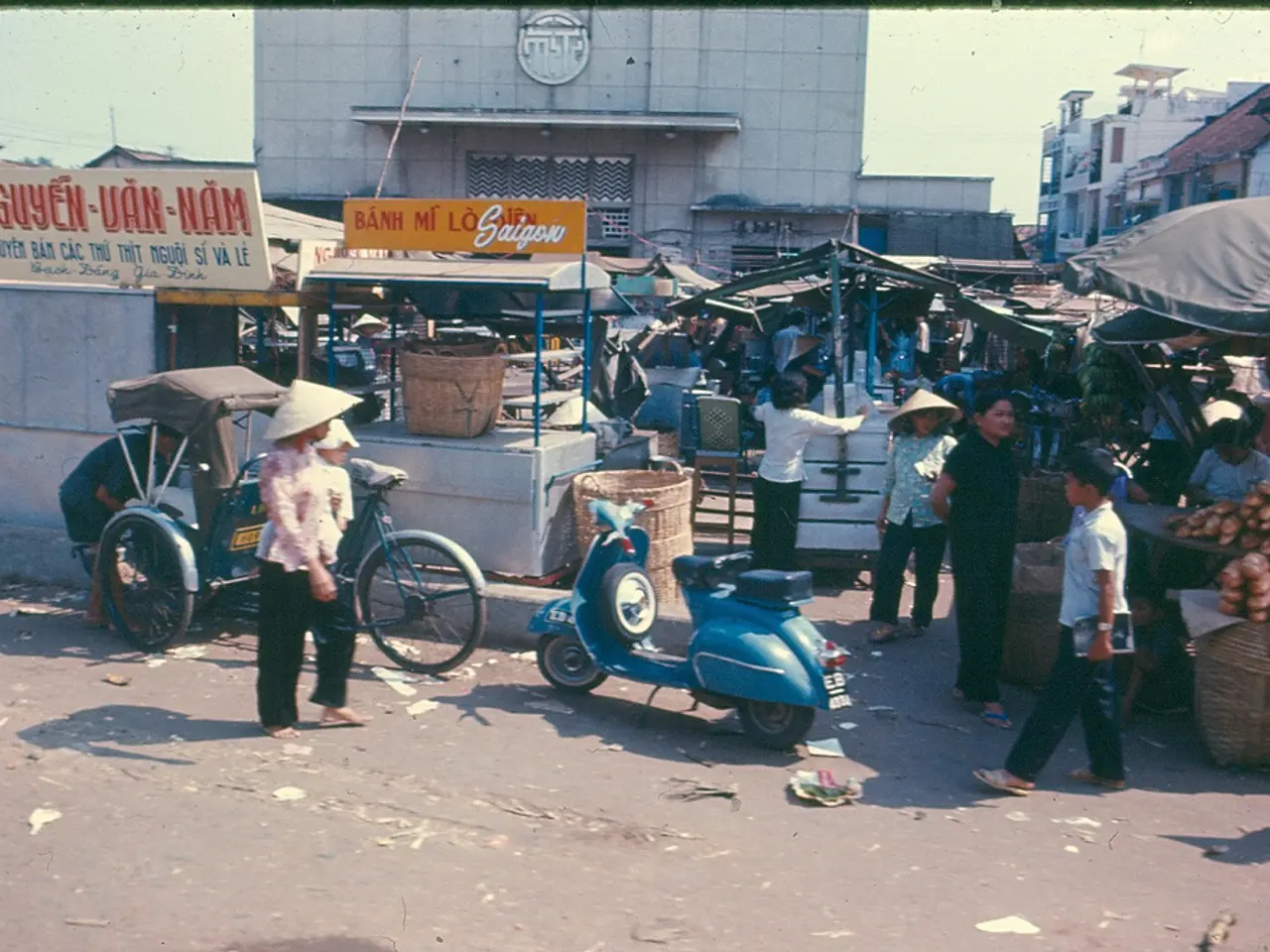Asia's Waste Management & Waste to Energy Gathering in 2025, Highlighting Malaysia's Emphasis
Malaysia Advances Waste-to-Energy and Biomass Projects for Sustainable Development
Malaysia is making significant strides in its waste management and renewable energy sectors, with a focus on waste-to-energy (WTE) projects and biomass initiatives.
Two WTE plants in Jeram are set to become operational by early 2026, each capable of processing 1,500 tonnes of solid waste daily, totalling 3,000 tonnes per day. These plants aim to reduce dependency on the nearly full Jeram landfill. Further WTE plants are planned at Tanjung 12 (two plants) and Bukit Tagar (one plant pending environmental approval), with land acquisition underway for Tanjung 12.
These developments are part of Malaysia’s 13th Malaysia Plan, which emphasizes optimising agricultural waste for circular economy benefits and expanding bioenergy production. The National Biomass Action Plan 2023-2030 specifically targets leveraging biomass resources to support renewable energy goals and reduce landfill use.
Malaysia aims for 31% renewable energy capacity by 2025, with biomass and WTE contributing alongside solar and hydropower as critical components of the renewable mix. The government is also promoting partnerships and advanced technologies, such as a recent MoU between Geo Alam, SIEE, and CBMI to deploy advanced waste management and alternative fuel technologies to reduce landfill dependency and support decarbonisation policies.
The convention, scheduled to take place in various locations including Jedok (Kelantan), Sungai Udang (Melaka), Pulau Burung (Penang), Lahat, Taiping and Manjung (Perak), Jabi and Padang Cina in Kedah, Rawang (Kuala Lumpur), Jeram, Tanjung Dua Belas and Rawang Dua (Selangor), Bukit Payung, Seelong and Sedili (Johor), Jabor-Jerangau and Belenggu (Pahang), and Tertak Batu (Terengganu), will gather leaders of WTE & Biomass Power Plants and waste management in Malaysia. The event will provide a platform for operators and investors to understand industrial policies and identify potential business opportunities in the WTE & bio-energy industry.
The convention will also highlight international developing trends and changes in the Malaysian market related to MSW, biogas, and biomass conversion to energy in Asia. It will cover a wide spectrum of topics on waste treatment, waste conversion, WTE power plant, and environmental issues. The event aims to improve the efficiency of waste, biogas, and biomass power generation projects and risk prevention.
Moreover, the convention will explore and evaluate financing options for successful bio-energy facilities. It will showcase the latest technologies from domestic and international WTE equipment suppliers. The convention will also emphasise the importance of biomass in Malaysia, supporting environmental goals and driving economic growth. The aim is to catalyse economic expansion, support sustainable development, and boost industry exports.
In summary, Malaysia's integrated strategy includes WTE plants, biomass initiatives, and renewable energy targets, aiming to manage increasing waste sustainably while advancing renewable energy and circular economy goals. This strategy is expected to contribute to the global energy transition and support Malaysia's climate goals while ensuring energy security.
[1] Malaysian Government Official Website [2] Malaysia's 13th Malaysia Plan [3] Environmental Advocacy Group Websites [4] Geo Alam, SIEE, and CBMI Official Announcements [5] Renewable Energy Malaysia Websites
- The upcoming convention for WTE & Biomass Power Plants in Malaysia will provide a platform for operators and investors to financing options for successful biomass facilities, aligning with the country's focus on investing in renewable energy.
- Beyond waste-to-energy plants and biomass initiatives, Malaysia's 13th Malaysia Plan employs technology to augment renewable energy goals, such as the recent deal between Geo Alam, SIEE, and CBMI to advance waste management and alternative fuel technologies.
- By targeting a 31% renewable energy capacity by 2025, with biomass and WTE playing vital roles amid solar and hydropower, Malaysia's energy transition strategy encompasses carbon reduction, optimizing agricultural waste, and boosting biomass technology.




